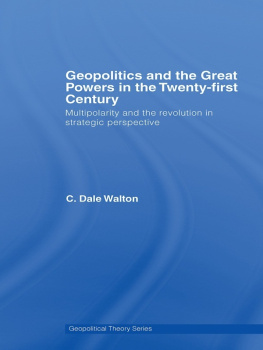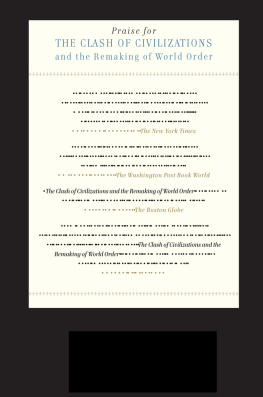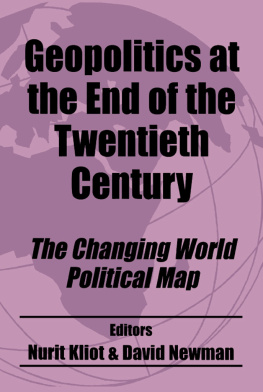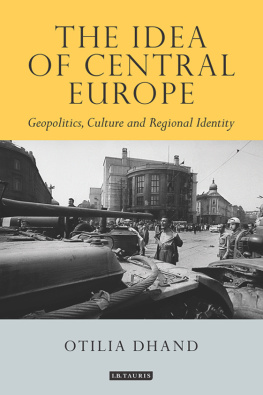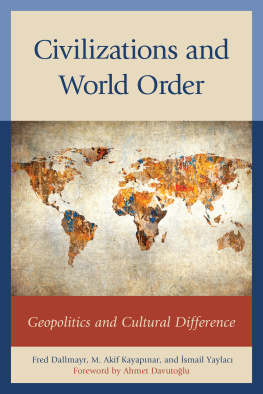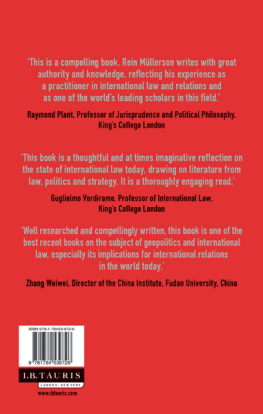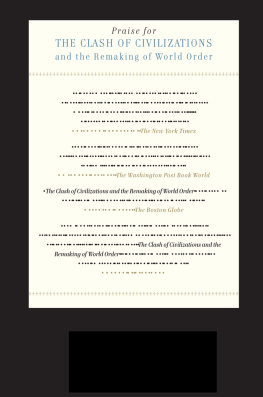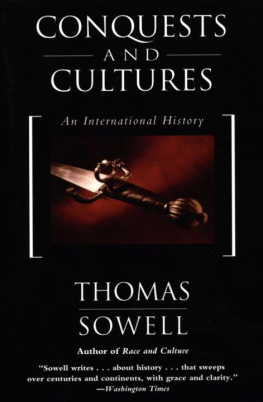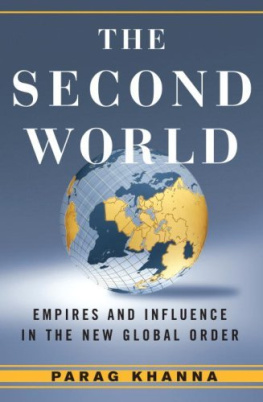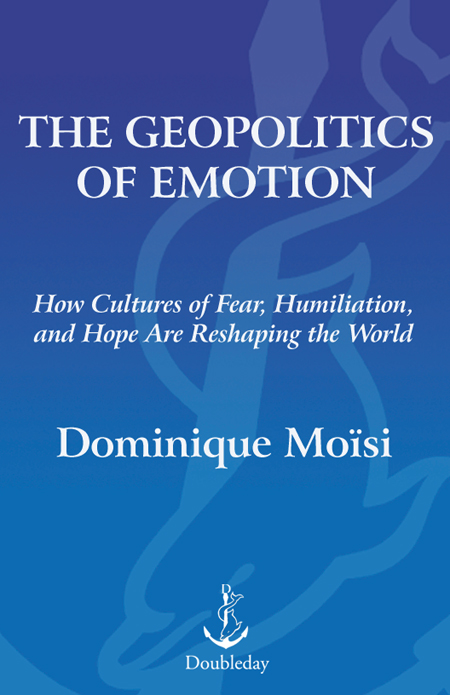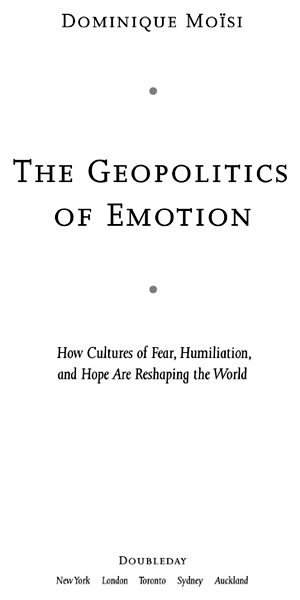Moisi - The geopolitics of emotion : how cultures of fear, humiliation, and hope are reshaping the world
Here you can read online Moisi - The geopolitics of emotion : how cultures of fear, humiliation, and hope are reshaping the world full text of the book (entire story) in english for free. Download pdf and epub, get meaning, cover and reviews about this ebook. City: New York u.a, year: 2010, publisher: Knopf Doubleday Publishing Group, genre: Politics. Description of the work, (preface) as well as reviews are available. Best literature library LitArk.com created for fans of good reading and offers a wide selection of genres:
Romance novel
Science fiction
Adventure
Detective
Science
History
Home and family
Prose
Art
Politics
Computer
Non-fiction
Religion
Business
Children
Humor
Choose a favorite category and find really read worthwhile books. Enjoy immersion in the world of imagination, feel the emotions of the characters or learn something new for yourself, make an fascinating discovery.

The geopolitics of emotion : how cultures of fear, humiliation, and hope are reshaping the world: summary, description and annotation
We offer to read an annotation, description, summary or preface (depends on what the author of the book "The geopolitics of emotion : how cultures of fear, humiliation, and hope are reshaping the world" wrote himself). If you haven't found the necessary information about the book — write in the comments, we will try to find it.
The first book to expose and investigate the far-reaching emotional impact of globalization.
In his celebrated 1993 book The Clash of Civilizations, political scientist Samuel Huntington argued that the fundamental source of conflict in the postCold War world would not be primarily ideological or economic, but cultural. In The Geopolitics of Emotion Dominique Mosi, a leading authority on international affairs, demonstrates that our post-9/11 world has become divided by more than cultural fault lines between nations and civilizations. Mosi brilliantly chronicles how the geopolitics of today is characterized by a clash of emotions, and how cultures of fear, humiliation, and hope are reshaping the world.
Mosi contends that both the United States and Europe have been dominated by fears of the other and of their loss of a national identity and purpose. Instead of being united by their fears, the twin pillars of the West are more often divided by themor, rather, by bitter debates over how best to confront or transcend them. For Muslims and Arabs, the combination of historical grievances, exclusion from the economic boon of globalization, and civil and religious conflicts extending from their homelands to the Muslim diaspora have created a culture of humiliation that is quickly devolving into a culture of hatred. Meanwhile, Asia has been able to concentrate on building a better future and seizing the economic initiative from the American-dominated West and so creating a new culture of hope.
Do these emotions represent underlying cultural tendencies characteristic of particular regions and populations today? How will these varying emotions influence the political, social, and cultural conflicts that roil our world? How can the West transcend its fear and avoid sliding into protectionism or militarism? What can the Muslim world do to overcome is legacy of humiliation? Will China and India manage to maintain their status as the cultures of hope? And what will the effect of the world economic crisis be? By delineating the necessity of confronting emotions to understand our changing world and deciphering the driving emotions behind our cultural differences, The Geopolitics of Emotion presents a provocative new perspective on globalization.
Moisi: author's other books
Who wrote The geopolitics of emotion : how cultures of fear, humiliation, and hope are reshaping the world? Find out the surname, the name of the author of the book and a list of all author's works by series.

